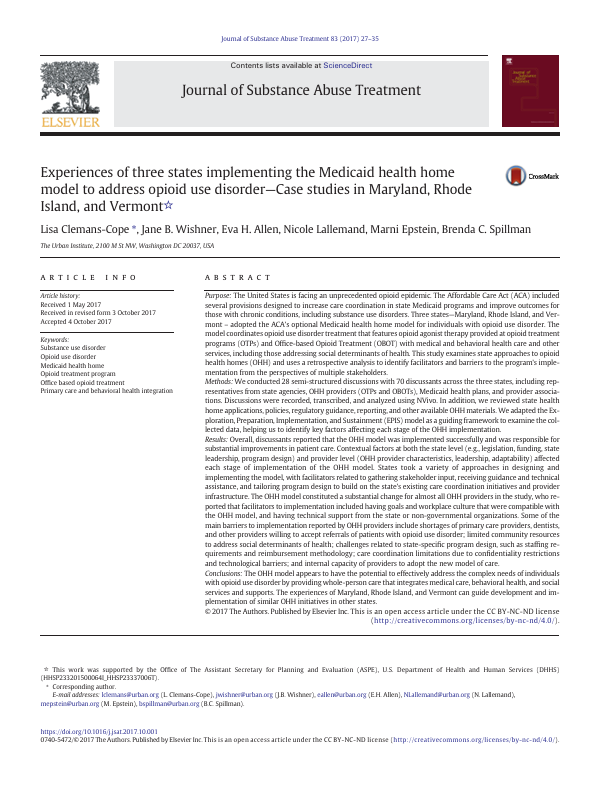Headline
Qualitative study highlights success factors and implementation challenges for state opioid health home (OHH) programs.
Background
The Medicaid health home model, established through the Affordable Care Act, provides enhanced federal funding for states to develop integrated care models for people with complex health needs, including multiple chronic conditions, serious mental illness, or developmental and intellectual disabilities. Three states — Maryland, Rhode Island, and Vermont — have adapted this model to enable opioid treatment providers to provide integrated care for people with opioid use disorder (OUD). This study examines the implementation of OHH programs in these three states.
Findings
This qualitative study involved 28 interviews with policymakers, OHH providers, health plans, and provider associations across the three states. Overall, participants reported that the OHH programs were implemented successfully and led to significant improvements in patient care. The article highlights implementation insights across each of the six core services required under the health home model, as well as challenges related to staffing ratios, provider shortages, data sharing, and infrastructure. Key facilitators to successful implementation included strong state leadership and cross-agency collaboration, engaging providers in program design, availability of technical assistance for OHH providers, and program designs that built on existing care coordination infrastructure.
Policy/Program Takeaways
The OHH model demonstrates potential to effectively address the complex needs of individuals with OUD by providing whole-person care that integrates medical care, behavioral health, and social services. States considering implementing similar models for individuals with OUD should consider the experiences of these three states.

